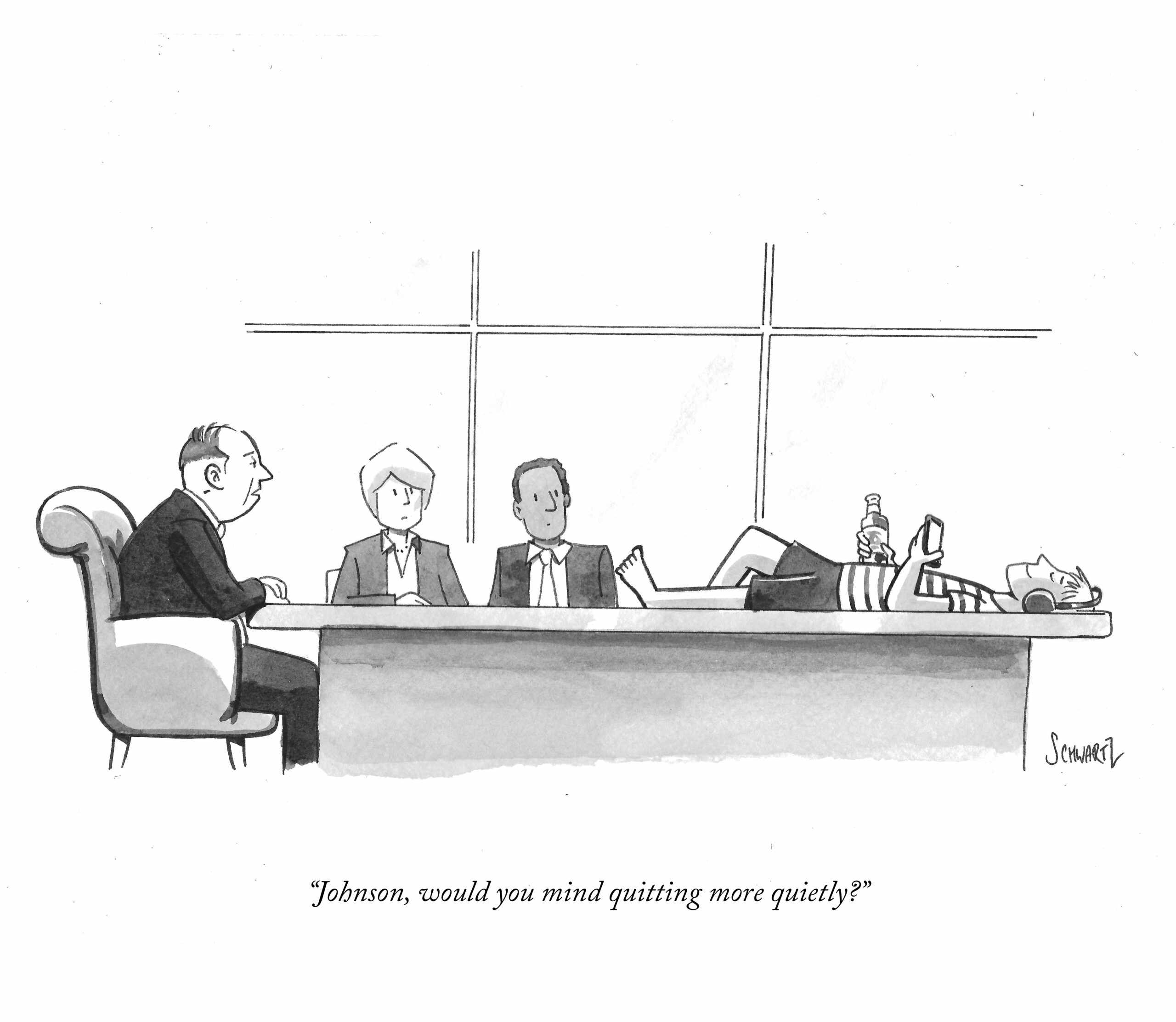Workplace trends
Greece swims upstream with a six-day workweek
Greece has become the first EU country to introduce a six-day work week for certain workers, bucking the global trend towards shorter work schedules. The regulation, which came into effect in the beginning of the month, impacts businesses operating 24/7 or 24/5 with rotating shifts. Greeks already work longer hours than most, averaging 1,886 hours in 2022, surpassing both the U.S. average of 1,811 hours and the EU average of 1,571 hours that year, according to data from the Organization for Economic Cooperation and Development. While the pro-business government insists this move aims to more fairly compensate workers and protect employees from their work not being officially declared, it has sparked outrage among labor unions.
Corporate ambivalence is paying a price
When it comes to political issues, companies often opt to remain neutral in order to avoid controversy. However, new research shows that companies that remain ambivalent tend to be less popular and respected than those that take a clear stance. The study by academics Geoff Durso and Duane Wegener examined reactions to opinions on COVID-19 mask mandates and immigration policy and found that expressing ambivalence led to decreased popularity and respect. In fact, participants disliked non-committal stances more than those with a firm approach that went against their own opinions. Organizations still have the option of saying nothing, like Harvard University, which recently announced it would no longer issue statements on political issues, but this research shows that if you are going to make a statement, customers and consumers are likely to react better to a clear position.
The AI corner
AI is transforming Taiwan into a global wealth hub
Taiwan is solidifying its position as a global powerhouse of technological wealth, driven by the AI boom. Taiwan Semiconductor Manufacturing Company (TSMC), among the world’s largest chipmakers and Asia’s most valuable listed company is leading this growth, while many other Taiwanese companies are also dominating the AI supply chain – from server makers and chip designers to suppliers of chip testing gear. This boom not only benefits founders and executives but also senior and mid-level employees, who receive substantial bonuses and are rapidly spreading wealth across the country. While the money flowing into real estate from high-earning tech workers is also driving up house prices, making them unaffordable for younger, lower-income workers in other industries, officials hope the wealth will eventually trickle down to all sectors of the economy.
AI is more into liberal arts than numbers
Contrary to expectations, AI chatbots excel more at writing poetry than crunching numbers. This is a significant move from traditional computers whose bread and butter were being the ultimate calculating machines. Experts say the reason is that the underlying technology of these models is very different from the computers of yesteryear. While traditional computers follow programmed step-by-step rules, AI employs neural networks loosely modeled on the human brain. These networks generate language by analyzing vast amounts of data, rather than performing simple calculations. OpenAI has acknowledged its AI models’ mathematical shortcomings and is actively working to improve, with its latest GPT version achieving 64% accuracy on mathematical problems – up from the previous version’s 58%.
The lonely side of management
When you’re a manager, there are undoubtedly times in which the phrase “the view from the top is a lonely one,” especially resonates. In fact, according to Gallup’s State of the Global Workplace Report 2024, managers experience significantly higher levels of loneliness than non-managers. And it makes sense. You’re responsible for keeping your employees engaged and motivated while balancing business priorities and high-level expectations.
While you may have great relationships with your employees, at the end of the day, there’s an inherent power imbalance, which means it’s not a regular friendship. You can’t vent about your company grievances or complain to your team members about your compensation, and you definitely can’t discuss a direct report who’s been getting on your nerves. There’s an undeniable need to set and maintain boundaries and keep things professional enough that your employees really respect you and your authority.
Yet at the same time, no matter how much you like your own boss, they also need to maintain similar professional boundaries with you, and there’s still an undeniable pressure to prove that you’re capable and in control – making it harder to share all of the emotional weight you’re carrying. Of course, you can go to them about specific hurdles and concerns, but ultimately, they don’t share the same day-to-day challenges and frustrations, and you need to maintain certain boundaries.
Bottom line? Despite how rewarding and empowering it is, being a manager can be… lonely.
So, how can you create a more connected experience for yourself at work?
Invest in team dynamics
A recent working paper by Brookings showed that relationships are the most important determinant of meaningfulness at work. So, while as a manager, it’s more complex to try and develop personal friendships with your direct reports, you can still prioritize building a close and connected team. As the leader, you have the power to facilitate an environment in which your team feels excited about getting to know and supporting one another. So, whether you leave a few minutes at the beginning of meetings for friendly chit-chat or funny ice breakers, organize a recurring team lunch or coffee time, schedule quarterly meetings to celebrate achievements altogether, or any other initiative that can help bring your people together, try to find ways to grow that sense of connectedness across your team and encourage more meaningful relationships.
Find connections outside your team
While you have to set boundaries with your team members, there are likely other people within your organization with whom you can develop closer connections, without risking boundary-crossing – particularly other managers or more senior independent contributors. While they don’t oversee the same people as you, they can still often relate to and understand the various challenges you face at work. And though it takes time to develop relationships with work colleagues, especially those you don’t work with on a day-to-day basis, do your best to get to know people outside your inner circle on a more personal level. In addition to helping you feel more connected, it can also open opportunities for strategic cross-team partnerships, brainstorms, and collaborations.
And if you’re not someone who’s comfortable putting yourself out there, make an active effort to attend company events or join relevant employee resource groups (ERGs) for more seamless introductions.
Seek out mentors
When you’re having a hard day and there’s someone to turn to who can say, “Listen, I get it. I’ve been in your shoes, and it’s going to be okay,” it instantly makes you feel less alone and more sure that you can overcome whatever it is you’re facing. So, try to find mentors – within your organization or in the wider industry – who can support you, offer advice, and help you grow. In addition to providing practical guidance, mentors can have a profound impact on the way you experience work. From offering emotional support to helping you clarify big-picture career goals, meaningful mentorship can drastically influence where you go and how you get there.
If you’re lucky, that person will be your direct boss, and they will go out of their way to help you succeed. Otherwise, chat with friends, family, and colleagues to see if they know of any excellent leaders outside your company, try attending industry events or joining professional organizations, and even try reaching out to people you already admire. 75% of executives say mentoring has been critical to their career development, per the American Society for Training and Development, so regardless of how you get there, do your best to find people who can help you navigate the complex world of management.
Find fulfillment outside of work
Remember that you deserve to have a life outside of work, so seek out ways to feel connected and supported in your personal life, too. If you’re going through an overwhelming period, take some time for yourself. Set boundaries, and make space to effectively relax and recharge when you need it. In addition to ensuring you avoid burnout, it also sets a great example for your team members about the importance of a healthy work-life balance. When it comes to loneliness, taking a chill day off to do something you enjoy, having dinner with a loved one, and even spending quality time with your pet can truly make a difference.
Show self-compassion
When work feels a bit lonely or it seems like no one fully understands the stress on your plate, cut yourself some slack and try to give yourself the same support that you’d give to your team members on a tough day. As long as you’re bringing your best self to work and doing what you can to support and empower your employees, you’re doing it right. So, take a breath and recognize that having these feelings from time to time doesn’t mean you’re any less qualified or effective at your job – it simply means you’re human.
Water cooler chatter
Delayed mealtimes may increase the risk of mental health issues. A new study in the journal JAMA Network Open, which analyzed data from more than 22,600 airline crew members, found that people working day shifts who delayed dinner past 8 PM had twice the risk of depression and a 78% higher risk of anxiety, while delaying breakfast until after 9 AM increased the risk of depression by 73%.
Delta Air Lines is struggling to recover from the worldwide technology outage. Though the outage, caused by faulty software updates, affected most airlines, other carriers managed to return to near-normal levels of disruptions, amplifying the scrutiny of Delta’s response. The airline, which has cited issues with its crew-staffing system, is scrambling not only to minimize disruptions, but to deal with the fallout of passengers demanding hotels, meals, and refunds.
Question of the week
Last week’s answer: 48%
This week’s question: What percent of employees believe that workplace friendships are crucial to job satisfaction?
Just for laughs

Quiet quitting more quietly
Don’t miss more quality content!


